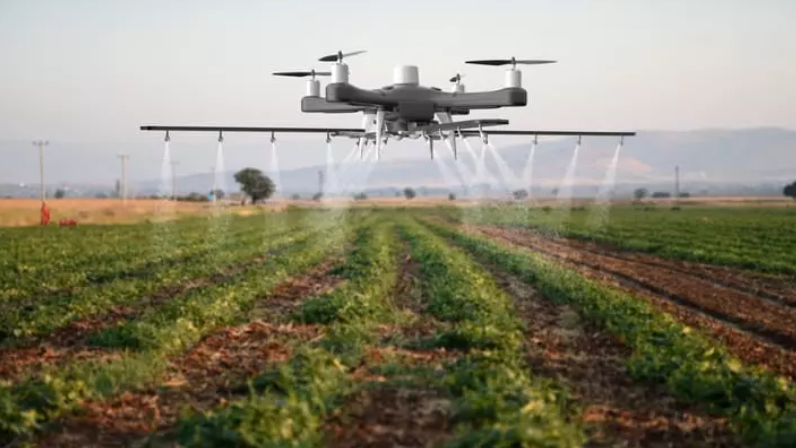A Brighton campaign group has warned that a proposed trade deal could lead to food going on sale locally that contains pesticides and chemicals banned in Britain for health reasons.
The Pesticide Action Network UK also urged the government not to agree a deal that would undermine British farmers by allowing imports that were cheaper because of lower standards.
The organisation, also known as PAN UK, has spoken out because of concerns about the prospect of Britain signing up to a Pacific trade agreement.
PAN UK, based in North Road, Brighton, and has produced a report, published today (Wednesday 9 June), with farming group Sustain and Sussex University expert Emily Lydgate.
The report is called Toxic Trade – How joining the Comprehensive and Progressive Agreement for Trans-Pacific Partnership (CPTPP) threatens to weaken UK pesticide standards.
It comes after the British government applied, in February, to join the free trade deal with 11 other countries, including Australia, Canada and Mexico.
Dr Lydgate, PAN UK and Sustain said: “The UK could be opening the door to 119 pesticides banned for health and environmental reasons.
“The deal … risks exposing UK consumers and wildlife to a new suite of toxic pesticides.
“The deal poses a direct threat to the British public’s health, environment and farming sector.
“It would also set a dangerous precedent that UK pesticide and environmental standards are up for negotiation in other post-Brexit trade negotiations.
“Though far from perfect, the UK’s pesticide standards are far more robust than those of existing CPTPP members.
“UK bans on notorious bee-harming neonicotinoids and water-polluting herbicides and insecticides could be reversed due to pressure from CPTPP member countries, where they are still in use.

“Foods such as apples, grapes, wheat, asparagus, avocados and blueberries grown in CPTPP countries are also allowed to contain much higher amounts of toxic pesticides than their UK equivalents.
“The report emphasises that the CPTPP is a done deal, already agreed by 11 members.
“By joining, the UK would surrender its power to write the rules, with virtually no scope to amend the treaty to prevent the undermining of UK pesticide standards.
“For UK farmers, the report highlights that the deal could spell disaster. It risks cheap food imports produced to weaker pesticide standards flooding the domestic market, undermining UK farmers’ competitiveness.
“And if the UK weakens its pesticides regime due to joining the CPTPP, farmers will lose their largest export market as UK produce will no longer meet EU standards.”
The report’s key recommendations to the government are
- Do not allow any weakening of its pesticide standards via the CPTPP, including resisting all pressure during the accession process
- Prevent UK farmers from being disadvantaged by cheap food imports produced to weaker pesticide standards in CPTPP member countries
- Ensure that decision to ratify joining the CPTPP takes place in the open, with the opportunity for full parliamentary and public scrutiny
…
PAN UK’s head of policy and campaigns Josie Cohen said: “This flies in the face of government promises not to sign a trade deal which compromises UK environmental protection and food standards”.
Dr Lydgate, senior lecturer in environmental law at Sussex University, said: “As the UK signs this deal, it must make clear its pesticide standards aren’t on the table. If not, it will find itself on a slippery slope.
“By breaking with its long-held precautionary approach and agreeing to weaker pesticide standards under the CPTPP, the UK would be much more likely to bow to similar demands from other trading partners.”
Sustain’s head of sustainable farming Vicki Hird said: “The government has talked a strong game on standing up for the UK farming sector post Brexit but actions speak louder than words.
“With the CPTPP deal, the government is selling farmers down the river. It would be a disastrous double whammy, potentially hitting both their domestic market and the majority of imports – to the EU.”
A poll of more than 1,700 people by YouGov for PAN UK found that 58 per cent thought it was important that the government resisted pressure to overturn pesticide bans even if it meant the UK was unable to join the CPTPP deal.









Lets hope the the UK Government takes a pragmatic science-based look at the use of pesticide rather than just listen to activist groups such as Extinction Rebellion, Sustrans, the Greens, and PAN UK.
IMO PAN UK spreads much misinformation and scaremongering about the danger of pesticides such as Glyphosate and unnecessarily generates paranoia in the population to support their aims.
Case in point is their work with Green Councillor Tom Druitt to have a “pesticide ban” agreed by councillors in the city in 2016.
Without going into the details, Glyphosate based weed killers are perfectly safe if usage guidelines are followed, and the pesticide ban only applies to use of one herbicide, Glyphosate, by council operatives on council land, except for removal of Japanese Hogweed and killing tree stumps.
It does not apply to anyone else using Glyphosate anywhere, including on public pavements and roads as it is still legal to use in the UK and EU and you can still purchase from garden centres and online.
Should have added – of course the “pesticide ban” only covered the one herbicide and the council agreed to reduce the number of sprayings to once per year.
In 2019, the Labour-led chair of the ETS committee decided to ignore this, and decided to stop all sprayings, but failed to offer a practical alternative.
2 years later they still haven’t come up with a scheme – other than to ask civic minded residents to remove the ever growing problem weeds for them.
Thank you PAN UK, the Green Party, and the Labour Party – does this remind anyone of other badly planned schemes recently implemented in the cause of “the environment”?
In what world, exactly, are weeds more of a problem than pesticide use? If there are some weeds about… oh well. If the bees go, we’re going with them.